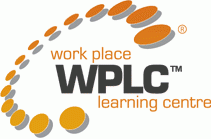Communicating the value of learning needs updating
Training professionals need to move away from traditional evaluation methods for their work, towards measures that address the real value learning and development contributes to strategic business objectives and in achieving high performance, according to a comprehensive new study from the Chartered Institute of Personnel and Development (CIPD).
The report argues for a shift away from trainer centred and return on investment models of evaluation, and towards "return on expectation" models that rely on deeper understanding and greater alignment with organisational priorities.
Martyn Sloman, CIPD Learning, Training and Development adviser, comments:
"There seems to be too much focus on measuring what matters to us as trainers, or on how satisfied people are after a training course and not enough on what really matters to our organisational masters.
"The development of a new approach to valuing learning is long overdue. For 30 years we have regarded a hierarchical approach based on return on investment as the only way to approach the problem - it has become a holy grail for the profession. The world of learning has changed and new models are required."
The study, Value and Evaluation: From return on investment to return on expectation produced in conjunction with the University of Portsmouth Business School is based on individual interviews with chief executives or other senior managers in 12 different organisations, and separate interviews with the most senior learning and development professionals in each of those organisations.
The research highlights how organisations are developing a range of different methods to assess and report on the value of learning.
The same questions were asked in the two interviews, building a unique picture of the differences in perspective between learning professionals and their operational masters.
Sloman continues:
"Given the wide range of possibilities, a key issue for practitioners is how to identify the measures that are most appropriate for their own organisation. A 'one size fits all' approach to value and evaluation is no longer feasible. An appropriate strategy requires thought and effort in the context of the particular organisation.
"Learning, training and development can only be perceived as successful if organisational decision-makers believe it delivers value. And because training is about people development, it needs to take into account not just hard quantitative data but also more subjective qualitative measures.
"Learning and development professionals need to recognise the importance of aligning learning processes with organisational priorities and the need to assess, demonstrate and report on the value contribution that learning makes to the organisation."
One of the key conclusions of the report is that effective value and evaluation processes require practitioners to develop and use measures that are relevant to organisational stakeholders and the needs of the business.
Measures of "return on expectation", rather than return on investment are more likely to meet these needs.
Sloman adds:
"What our research has shown is that operational managers and learning and development professionals will gain most by focusing on measuring return on expectations.
And the crucial first stage is to focus on establishing "up front" the anticipated benefits of learning interventions. Through focused dialogue, real understanding and trust can be built up, allowing a clearer assessment after the event of whether expectations have been met. Learning and development professionals may be pleasantly surprised at the extent to which senior managers will embrace 'softer' more qualitative data alongside 'hard'
numerical data when looking for an assessment of return on expectations.
"Trying to measure learning by figures and financial results is a bit like driving with your eyes fixed on the rear view mirror.
Return on investment can be a valuable measure in some circumstances but it is not the answer on its own".
Dr Valerie Anderson, Principal Lecturer in HRM, University of Portsmouth Business School adds:
"Adopting a research process that enabled us to seek out the views and experiences of senior managers, learning and training executives and a range of other learning professionals we have been able to gather information to help us to develop a new approach to value and evaluation that we feel will help organisations to be better able to support, accelerate and direct learning towards individual and organisational needs".
Members of the Work Place Learning Centre team are available to provide journalists and media organisations with expert comment on all aspects of learning at work.
View our editorial policy click here.
